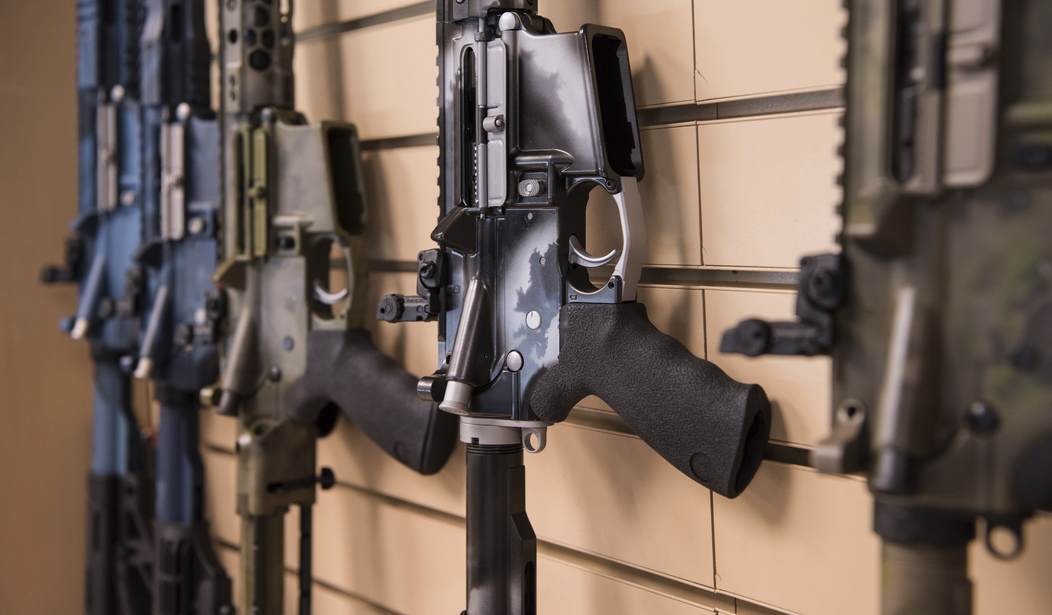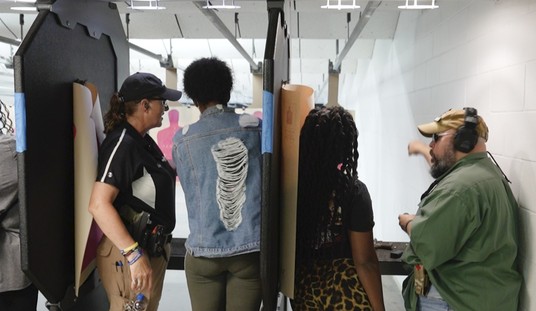A federal judge in California delivered a big legal win to gun owners and Second Amendment supporters late Friday afternoon, striking down the state’s ban on so-called assault weapons on constitutional grounds. U.S. District Judge Roger Benitez, affectionately called St. Benitez by some California gun owners thanks to a 2017 decision that overturned the state’s ban on “high capacity” magazines (the decision was upheld by the Ninth Circuit, but the court is re-hearing the case en banc, with oral arguments set to take place later this month), delivered another body blow to the gun control movement with Friday’s decision.
Gun control activists are already pitching a fit over some of Judge Benitez’s language, including his comparison of the AR-15 to the Swiss Army Knife, declaring the gun the “perfect combination of home defense weapon and homeland defense equipment” and one that’s “good for both home and battle.” Benitez says the AR-15 is the “kind of versatile gun that lies at the intersection of the kinds of firearms protected under District of Columbia v. Heller and United States v Miller” and its manufacturer and possession is clearly protected by the Second Amendment.
Some critics of the judge’s latest ruling, including Anthony Rendon, the speaker of the California Assembly, noted an irony: It was handed down on National Gun Violence Awareness Day, an annual project organized by groups that advocate for tougher gun laws.
The ruling is “alarming and wrong,” said Ari Freilich, the state policy director at the Giffords Law Center to Prevent Gun Violence, a group led by Gabrielle Giffords, the former representative from Arizona who was shot a decade ago. “It’s also an insult to families across the nation, on today of all days, who have seen in the most painful way possible how dangerous and deadly assault weapons are.”
California Attorney General Rob Bonta was also butthurt over the fact that Benitez handed down his opinion on a day that anti-gun groups have arbitrarily tried to declare as some gun control holiday. Lashing out at the decision, Bonta called it “fundamentally flawed” and vowed to appeal the decision.
Second Amendment supporters, on the other hand, are understandably thrilled.
Brandon Combs, the president of the Firearms Policy Coalition, a group in Sacramento that helped bring the lawsuit to court, said in a statement that the ruling “held what millions of Americans already know to be true: Bans on so-called ‘assault weapons’ are unconstitutional and cannot stand.”
Alan M. Gottlieb, founder of the Second Amendment Foundation, another group that was involved in the lawsuit, said in a statement that the judge’s ruling had “shredded California gun control laws regarding modern semiautomatic rifles.”
“It is clear the judge did his homework on this ruling, and we are delighted with the outcome,” added Mr. Gottlieb, whose group is based in Washington State.
You can read Judge Benitez’s excellent opinion for yourself right here, and I’d encourage you to do so, but here are a few of the highlights, starting with his take on the argument that AR-15s are too dangerous for We the People to own.
One is to be forgiven if one is persuaded by news media and others that the nation is awash with murderous AR-15 assault rifles. The facts, however, do not support this hyperbole, and facts matter.
Federal Bureau of Investigation murder statistics do not track assault rifles, but they do show that killing by knife attack is far more common than murder by any kind of rifle. In California, murder by knife occurs seven times more often than murder by rifle. For example, according to F.B.I. statistics for 2019, California saw 252 people murdered with a knife, while 34 people were killed with some type of rifle – not necessarily an AR-15.
Benitez on the argument that AR-15s are more dangerous because they’re more accurate than older hunting rifles:
In the terrible mass shooting context, which fortunately is a rare event, reducing the number of innocent victims is the State’s goal, although it is not at all clear that a less accurate rifle would reduce the number of victims. A less accurate rifle in the hands of a mass shooter may very well result in different victims, but not necessarily less victims. On the other hand, in the self-defense context, which seems to be more common, taking accurate shots at attackers is vitally important for the innocent victim. While the state ought to protect its residents against victimization by a mass shooter, it ought also to protect its residents against victimization by home-invading criminals. But little is found in the Attorney General’s court filings reflecting a goal of preventing violence perpetrated against law-abiding citizens in their homes. Instead, the State’s litigation stance is more like the view recently expressed by a police chief in Oakland, California: we do not want victims to arm themselves; we want them to be good witnesses. Of course, a dead victim is a lousy witness.
Benitez also obliterated the state’s argument that AR-15s and other modern sporting rifles are disproportionately used in crime, noting that the evidence doesn’t back up the state’s assertion but further declaring that even if it were true, it wouldn’t justify a ban.
If use by criminals could justify a weapon’s ban, it would amount to something like a disfavored “heckler’s veto.” We might call it the “criminal’s veto.” See e.g., Santa Monica Nativity Scenes Comm. v. City of Santa Monica, 784 F.3d 1286, 1292-93 (9th Cir. 2015) (explaining “heckler’s veto” doctrine) (“If speech provokes wrongful acts on the part of hecklers, the government must deal with those wrongful acts directly; it may not avoid doing so by suppressing the speech.”).
Just as a heckler’s veto wrongly punishes persons who speak their ideas, California’s ban punishes persons who choose modern rifles for home defense. In other words, if modern rifles are misused in crime (even disproportionately), government must deal with those wrongful acts directly; it may not deal with the problem by suppressing the rights of law-abiding citizens to have modern rifles for lawful uses. Thus, disproportionality is not a valid constitutional concern. Common ownership by law abiding citizens for lawful purposes is the test.
Do yourself a favor and go read the entire decision, which is far too long to quote in its entirety.
The only downside to this ruling is that Benitez granted a 30-day stay on the permanent injunction against enforcement of California’s ban, so the law will remain in effect while the state of California appeals to the Ninth Circuit. Californians may not be able to run out and buy any modern sporting rifle that they want today, but Judge Benitez has given them a huge legal victory that will hopefully be upheld by the Supreme Court if and when this cases reaches the highest court in the land.








Join the conversation as a VIP Member